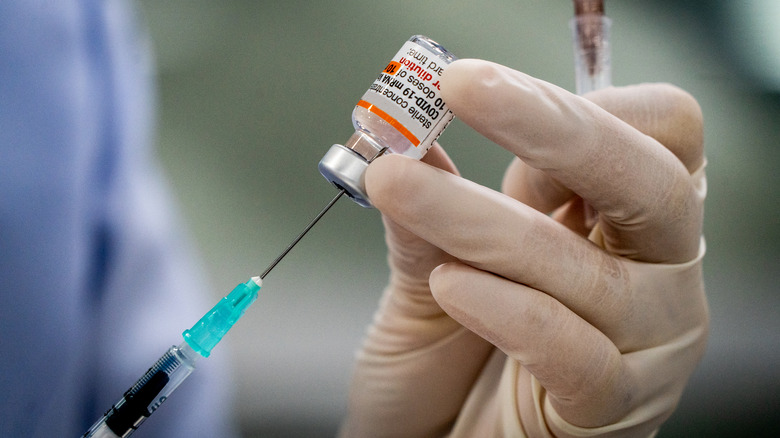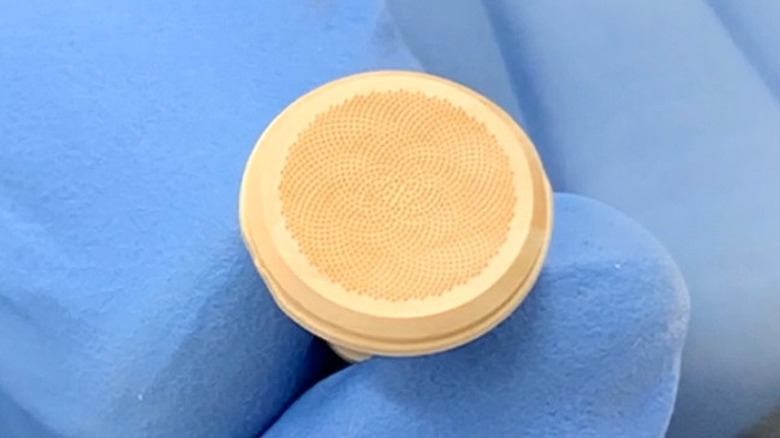Afraid Of Needles? An Australian Company Are Very Close To An Alternative
Trypanophobia, the fear of needles, is one of the most common phobias in the world, with around 16% of adult individuals dealing with it. Given the breadth of vaccinations necessitated by the COVID-19 pandemic in the last few years, the commonality of this fear and the problems caused by it have been clearer than usual. Trypanophobia makes it more difficult to encourage individuals to come in for vital vaccinations, which can slow an important mass-vaccination effort. That's on top of the existing time-consuming process of manufacturing sterile injectors.
For years now, medical researchers have been tinkering with ways to deliver vaccinations in a faster, less painful manner. One company based out of Australia, Vaxxas, may finally have the solution we've been waiting for — vaccine patches. They're fast, efficient, and most importantly, virtually painless. This technology is already very close to being commercially viable, which is why the Australian state of Queensland is providing support and funding to get them the rest of the way.
Quick and painless vaccines
Vaxxas' vaccine patch tech was originally developed in 2011 by researchers from the University of Queensland based on existing concepts of dry-delivery microneedles. Rather than a typical injection, each individual needle is coated with the vaccine solution.
Thousands of these tiny needles are placed on the inside of a small patch, small enough that you can't see or feel them, yet fine enough to pierce upper layers of skin. One of these patches is placed on a patient's arm, and with a mere tap, the needles deliver their vaccine payload to your immune cells. The process takes just a few seconds, and the patient barely feels anything. Plus, since the needles are so small, creating one patch requires only a fraction of the vaccine solution necessary to make a traditional injection.
To expedite the development and deployment of vaccine patches to the rest of Australia and the world at large, the Queensland state government has pledged its full support to Vaxxas' efforts, making the patches an official part of its Biomedical 10-Year Roadmap and Action Plan.
"This world-renowned technology has the potential to play a vital role in pandemic-preparedness because it allows vaccines to be deployed quickly and easily to our communities," Queensland deputy premier Steven Miles told New Atlas.
Vaxxas has already successfully tested its vaccine patch system on over 500 human subjects. If all goes well, vaccine patches could see a commercial rollout in the next three to five years.

